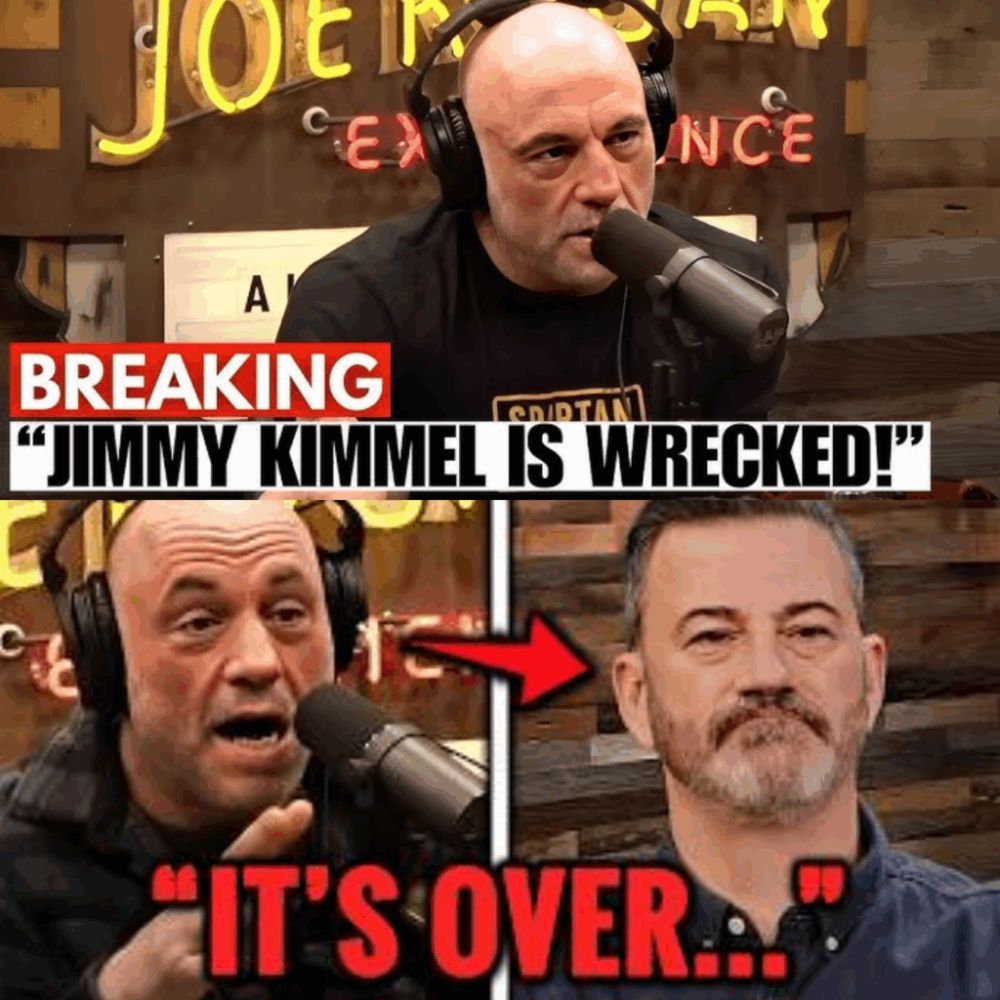The Fallout from Jimmy Kimmel’s Controversial Comments: A Comedy in Crisis

In a recent episode of The Joe Rogan Experience, the conversation took a sharp turn towards the realm of late-night comedy, particularly focusing on the backlash faced by Jimmy Kimmel. Rogan and his guests discussed Kimmel’s recent tweets and remarks that have drawn accusations of transphobia, highlighting the growing tension between comedy and political correctness in today’s media landscape.
Kimmel’s Jokes and the Backlash
Jimmy Kimmel, a prominent figure in late-night television, has been known for his edgy humor, especially during his early career on The Man Show
However, his recent attempts at humor, particularly in response to Elon Musk, have landed him in hot water. Kimmel’s tweet, which jokingly referred to Musk’s pronouns as “ass and whole,” was met with criticism from some quarters for being transphobic. This reaction underscores a significant shift in the cultural landscape, where even seemingly innocuous jokes can be scrutinized and condemned.
Rogan pointed out the hypocrisy of Kimmel’s situation. As a self-proclaimed advocate for progressive values, Kimmel found himself criticized by the very community he often supports. This raises an important question: can comedians navigate the fine line between humor and offense in an age of heightened sensitivity? Kimmel’s attempt to jab at Musk inadvertently backfired, revealing the precarious nature of comedy in today’s climate.
The Transformation of Late-Night Comedy
Rogan lamented how late-night comedy has evolved into a platform for leftist propaganda rather than pure entertainment. He argued that Kimmel’s shift from edgy humor to politically charged commentary has alienated a significant portion of his audience. Once a comedian focused on providing laughs, Kimmel now finds himself entangled in a web of political correctness that dictates his comedic choices.
This transformation is not unique to Kimmel. Many late-night hosts have adopted similar approaches, prioritizing political commentary over traditional comedy. The result is a landscape where viewers tune in for humor but are often met with lectures on social issues instead. Rogan’s critique highlights a growing discontent among audiences who feel that comedy should entertain, not preach.
The Irony of Woke Culture
The irony of Kimmel’s predicament lies in his previous support for censorship and the silencing of opposing viewpoints. Rogan pointed out that Kimmel, along with many in the entertainment industry, cheered on the banning and deplatforming of voices they deemed offensive. Now, as he faces backlash for his own comments, Kimmel finds himself on the receiving end of the very culture he helped foster.
This hypocrisy is evident in Kimmel’s public persona. He has positioned himself as a champion of free speech, yet his actions have often contradicted that stance. The left’s sudden outcry for free expression stands in stark contrast to their previous support for censorship, revealing a double standard that many find hard to ignore.
The Consequences of Alienation
Kimmel’s remarks about the MAGA crowd have not only drawn ire from his critics but have also alienated a substantial portion of his audience. By turning his platform into a political soapbox, Kimmel risks losing viewers who once tuned in for entertainment. Rogan emphasized that alienating nearly half the country is not just reckless; it’s a recipe for career disaster.
As Kimmel continues to navigate this treacherous terrain, the question remains: can he reclaim his audience and restore his credibility as a comedian? The consensus among broadcasters is clear; many have deemed his comments out of line, leading to a significant backlash from viewers and advertisers alike. The fallout from his statements has prompted discussions about the responsibilities of public figures in the realm of comedy.
The Future of Comedy and Free Speech
As the conversation concluded, Rogan and his guests reflected on the future of comedy in an increasingly polarized society. The delicate balance between humor and sensitivity poses a challenge for comedians who wish to remain relevant while navigating the minefield of political correctness. The fear of backlash can stifle creativity, leaving comedians hesitant to push boundaries.
In this evolving landscape, the role of comedy as a reflection of society becomes even more critical. Comedians must find ways to engage with current issues without sacrificing their comedic integrity. The challenge lies in delivering laughter while addressing the complexities of modern life—a task that requires skill, nuance, and a willingness to take risks.
Conclusion: A Call for Authenticity
Jimmy Kimmel’s recent controversies serve as a cautionary tale for comedians navigating the intersection of humor and politics. As audiences demand authenticity and genuine engagement, the pressure mounts for public figures to deliver content that resonates without alienating segments of their audience. The future of comedy hinges on the ability to adapt and evolve while remaining true to the art form. In a world where laughter is needed more than ever, comedians must strive to find that balance between entertainment and meaningful dialogue.